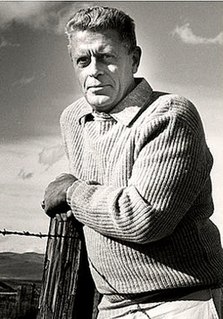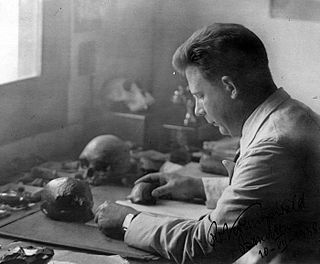A Quote by Jane Addams
What is a great man who has made his mark upon history? Every time, if we think far enough, he is a man who has looked through the confusion of the moment and has seen the moral issue involved; he is a man who has refused to have his sense of justice distorted; he has listened to his conscience until conscience becomes a trumpet call to like-minded men, so that they gather about him, and together, with mutual purpose and mutual aid, they make a new period in history.
Quote Topics
About
Aid
Becomes
Call
Confusion
Conscience
Distorted
Enough
Every
Every Time
Far
Gather
Great
Great Man
Him
His
History
Involved
Issue
Justice
Like
Listened
Looked
Made
Make
Man
Mark
Men
Minded
Moment
Moral
Moral Issue
Mutual
Mutual Aid
New
Period
Purpose
Refused
Seen
Sense
Think
Through
Time
Together
Trumpet
Until
Related Quotes
Men and women are made for each other, but their mutual dependence differs in degrees; man is dependent on woman through his desires; woman is dependent on man through her desires and also through her needs; he could do without her better than she can do without him. She cannot fulfill her purpose in life without his aid, without his goodwill, without his respect.....Nature herself has decreed that woman, both for herself and her children, should be at the mercy of man s judgment.
We may gamble on outsmarting the law; we may even gamble on the leniency of man and the mercy of God-but no man ever won a gamble with his own conscience. Even should he think he has beaten his conscience into submission, his misdeeds still leave their mark upon him. Anyone who gambles against this fact has already lost his gamble.
Man is appealed to be guided in his acts, not merely by love, which is always personal, or at best tribal, but by his perception of his oneness with each human being. In the practice of mutual aid, which we can re-trace to the earliest beginnings of evolution, we thus find the positive and undoubted origin of our ethical conceptions; and we can affirm that in the ethical progress of man, mutual support- not mutual struggle- has had the leading part.
True law, the code of justice, the essence of our sensations of right and wrong, is the conscience of society. It has taken thousands of years to develop, and it is the greatest, the most distinguishing quality which has developed with mankind ... If we can touch God at all, where do we touch him save in the conscience? And what is the conscience of any man save his little fragment of the conscience of all men in all time?
[Black nationalism] is not designed to make the black man reevaluate the white man--you know him already--but to make the black man re-evaluate himself. Don't change the white man's mind; you can't change his mind. And that whole thing about appealing to the moral conscience of America--America's conscience is bankrupt.
Man did not address his inquiries to the earth on which he stood until a remarkably late stage in the development of his desire for knowledge. And the answers he received to the questions, "Where do I come from?", "What is man?", although they made him poorer by a few illusions, gave him in compensation a knowledge of his past that is vaster than he could ever have dreamed. For it emerged that the history of life was his history too.
Of all the differences between man and the lower animals, the moral sense or conscience is by far the most important. This sense, as Mackintosh remarks, "has a rightful supremacy over every other principle of human action"; it is summed up in that short but imperious word "ought," so full of high significance. It is the most noble of all the attributes of man, leading him without a moment's hesitation to risk his life for that of a fellow-creature; or after due deliberation, impelled simply by the deep feeling of right or duty, to sacrifice it in some great cause.
Another doctrine repugnant to Civill Society, is that whatsoever a man does against his Conscience, is Sinne ; and it dependeth on the presumption of making himself judge of Good and Evill. For a man's Conscience and his Judgement are the same thing, and as the Judgement, so also the Conscience may be erroneous.
Must the citizen ever for a moment, or in the least degree, resign his conscience to the legislator? Why has every man a conscience, then? I think that we should be men first, and subjects afterward. It is not desirable to cultivate a respect for the law, so much as for the right. The only obligation which I have a right to assume is to do at any time what I think right... Law never made men a whit more just; and, by means of their respect for it, even the well-disposed are daily made the agents of injustice.
There is a man who exists as one of the most popular objects of leadership, legislation, and quasi-literature in the history of all men. . . . This man, that object of attention, attack, and vast activity, cannot make himself be heard, let alone understood. He has never been listened to. . . . That man is Black and alive in white America where the media of communication do not allow the delivery of his own voice, his own desires, his own rage.




































